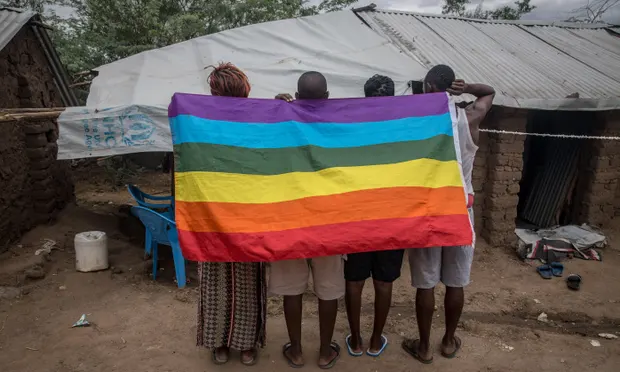Uganda is considering a new bill that would criminalize identifying as LGBTQ, a move that has drawn criticism from human rights groups and activists. The bill, known as the Sexual Offenses Bill, would make it illegal for anyone to identify as gay, lesbian, or transgender, with penalties ranging from fines to life imprisonment.
This is not the first time Uganda has attempted to pass such a bill. In 2014, the country’s parliament passed a similar bill, known as the Anti-Homosexuality Act, which prescribed life imprisonment for homosexual acts. However, the law was later overturned by the country’s constitutional court on a technicality.
The new bill, which was introduced in parliament in April 2021, seeks to broaden the definition of sexual offenses and includes provisions that would make it illegal to promote or support homosexuality. Under the proposed law, anyone who “funds, sponsors, or abets homosexuality” could face up to seven years in prison.
The bill has been met with strong opposition from human rights groups and activists, who argue that it violates basic human rights and is discriminatory. Amnesty International has called on the Ugandan government to reject the bill, saying that it would “further criminalize consensual same-sex conduct, including through vague and overly broad provisions that could easily be abused to harass and imprison people.”
The proposed law has also drawn criticism from foreign governments and international organizations. The United States, which has been a strong advocate for LGBTQ rights, has condemned the bill, with the State Department saying that it would “undermine public health, human rights, and fundamental freedoms.” The European Union has also expressed concern, saying that the bill would “criminalize individuals on the basis of their sexual orientation or gender identity.”
The bill has been introduced at a time when LGBTQ rights are coming under attack in many parts of the world. In recent years, countries such as Russia, Hungary, and Poland have passed laws that restrict the rights of LGBTQ people. These laws have been widely criticized by human rights groups and activists, who argue that they are discriminatory and violate basic human rights.
In Uganda, the proposed bill has sparked protests and demonstrations. LGBTQ activists have been leading the charge against the bill, with some saying that they are willing to go to jail rather than renounce their sexual identity. “We cannot change who we are,” said one activist. “We are Ugandans, and we deserve to be treated with dignity and respect.”
The proposed bill has also raised concerns about the safety of LGBTQ people in Uganda. Human rights groups have documented cases of violence and discrimination against LGBTQ people in the country, and many fear that the new law could exacerbate the situation. “This bill sends a message to the public that it is okay to discriminate against LGBTQ people,” said one activist. “It puts our lives in danger.”
Despite the criticism, the bill has gained support from some conservative groups in Uganda. The country’s Ethics and Integrity Minister, Simon Lokodo, has been a vocal supporter of the bill, saying that homosexuality is “unnatural” and “un-African.” Lokodo has also accused foreign governments and organizations of using “blackmail and coercion” to promote LGBTQ rights in Uganda.
The proposed bill is currently being debated in parliament, and it is unclear whether it will be passed into law. However, the fact that such a bill has been introduced is a worrying sign for LGBTQ rights in Uganda and Africa as a whole. It underscores the need for continued advocacy and support for human rights, particularly for marginalized communities such as LGBTQ people.
The debate over the Sexual Offenses Bill is ongoing, with both sides presenting their arguments. Those in favor of the bill argue that it is necessary
Image Credit: ZUMA Press, Inc./Alamy




